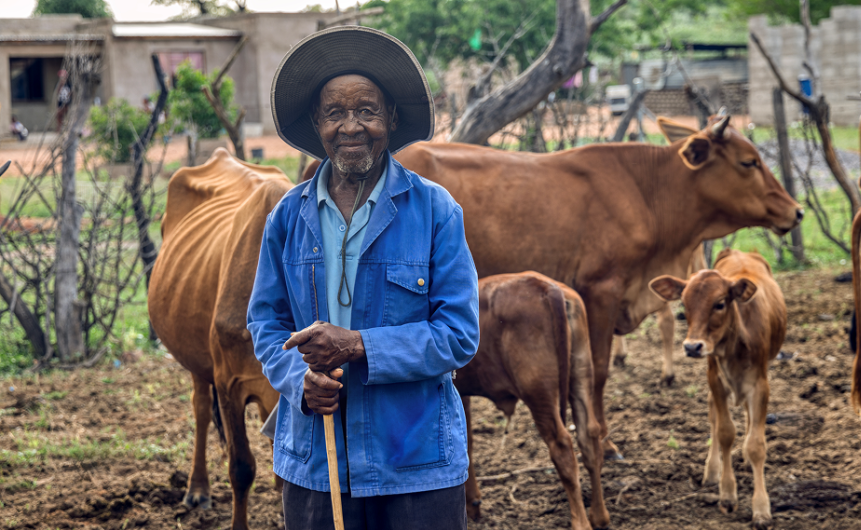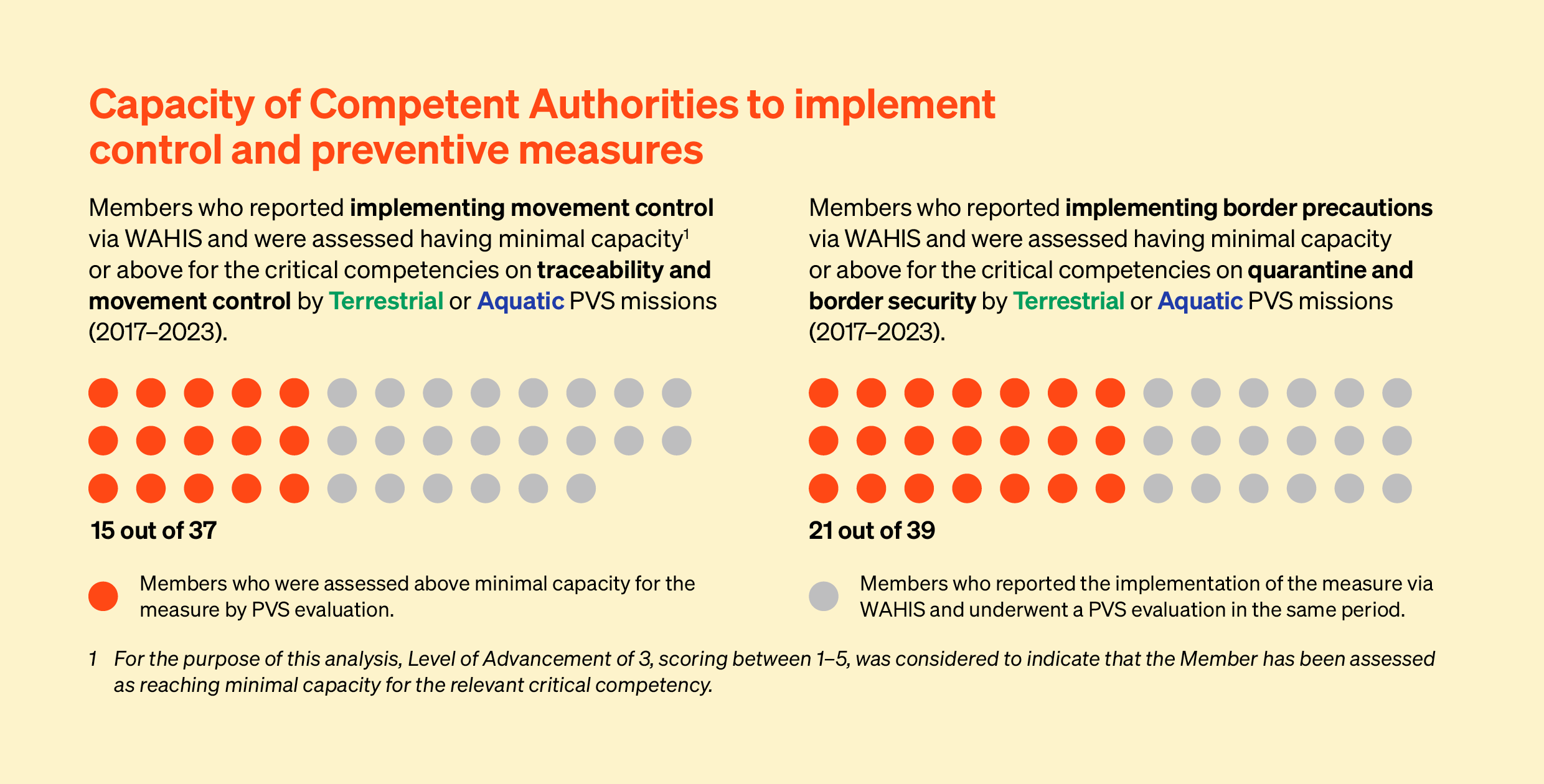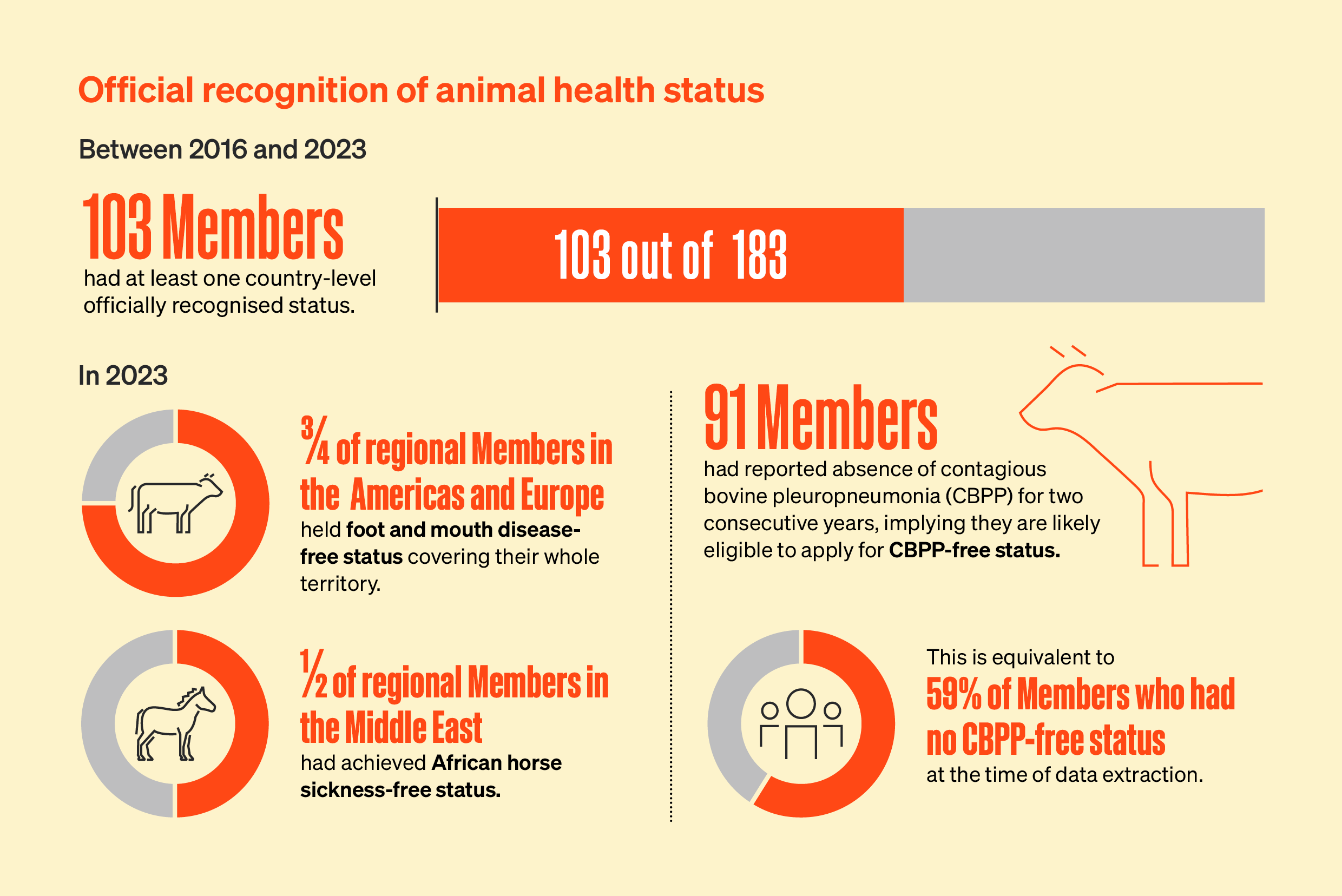Animal health and welfare standards help countries prevent and control the spread of diseases, while supporting safe animal movement and international trade. Setting these standards is a core activity of the World Organisation for Animal Health (WOAH), which relies on scientific evidence and the latest data to build consensus among its members on effective measures to manage and combat a wide range of diseases.
Botswana offers a compelling example of the positive impact that standards can have on both animal health and human activities, upcoming Second Observatory Monitoring Report. From there, it is possible to identify Botswana as a successful country in implementing standards related to movement control, border precautions, zoning, and official disease status recognition.
The mandate of the Observatory is to assess the uptake of WOAH’s standards by its members. The Second Observatory Monitoring Report, which findings are also featured in the inaugural State of the World’s Animal Health, provides insights on their implementation worldwide, while also setting a baseline for the on-going development of the eighth strategic plan of WOAH. The innovative approach of the report consists in relying on data coming from both WOAH’s projects such as ANIMUSE, PVSIS or WAHIS, and external sources.
The new report provides useful insights on antimicrobial use and antimicrobial resistance, movement control inside countries/territories and precautions at borders, zoning and compartmentalisation, implementation of the One Health approach, self-declarations and official status, and trade and sanitary measures.
The cross-analysis of data performed by the Observatory revealed Botswana as a notable example. By analysing information on movement control within territories and border precautions, Botswana was identified as one of the countries that efficiently implemented both measures in response to a disease outbreak reported through the World Animal Health Information System (WAHIS). Over the same period, it also received a positive assessment from the Performance of Veterinary Services Information System (PVSIS). These two WOAH initiatives provide complementary insights: WAHIS tracks animal disease outbreaks and control measures taken by the Members, while PVSIS evaluates the capacity of national veterinary services. Their combined analysis in the second edition of the Observatory Monitoring Report deepens our understanding of the impact of movement control and border precautions in managing animal health risks.
Read the full factsheet on movement control inside countries/territories and precautions at borders
Botswana is represented by one of the orange dots in the chart above – a sub-group within the larger grey category. This indicates that Botswana’s Veterinary Services demonstrated, through an independent evaluation, their capacity to implement movement control measures by establishing a system for animal identification, traceability, and movement control targeting specific animal sub-populations in accordance with WOAH standards. Regarding border precautions, the evaluators found that Botswana was able to apply quarantine and border security procedures at all official entry points. However, these procedures do not yet systematically address illegal activities related to the import of animals, animal products, and veterinary products.
The implementation of these relevant standards has been key to achieving and maintaining official disease-free status. Today, Botswana is officially recognized by WOAH as free from contagious bovine pleuropneumonia (CBPP) and peste des petits ruminants (PPR) across the entire country, and from foot and mouth disease (FMD) in specific zones. It is one of the few countries in Africa to hold WOAH-recognized disease-free status, an achievement that can have a significant impact on a country’s economy.
“Our mandate is to contribute to the development of our nation’s economy through agriculture,” said Kefentse Motshegwa, Director of Botswana’s Veterinary Services and WOAH Delegate. “Thanks to the disease-free status, our producers can access premium markets such as Europe, where they can sell their products at better prices”.
Kefentse Motshegwa, Director of Botswana’s Veterinary Services and WOAH Delegate.
See the full factsheet on self-declarations and official status
Botswana has also opted for transparency on its animal health services through its decision to make the reports from its Performance of Veterinary Services (PVS) Evaluations public on the PVSIS portal. While countries are free to choose whether or not to disclose the results of these assessments, WOAH encourages this practice, as it helps inform and strengthen international relationships in areas such as trade, investment, and development.
“I believe that, as a nation, we are very transparent,” Kefentse Motshegwa said. “And this can be beneficial in many ways. By openly sharing the weaknesses and risks we face, we can actually build trust with our neighbouring countries and trade partners. We have seen that by communicating our challenges honestly, we have improved our opportunities of receiving support. This transparency is valued by our own government, and it helps us to be clear with our development partners about our needs and the progress we are making.”




